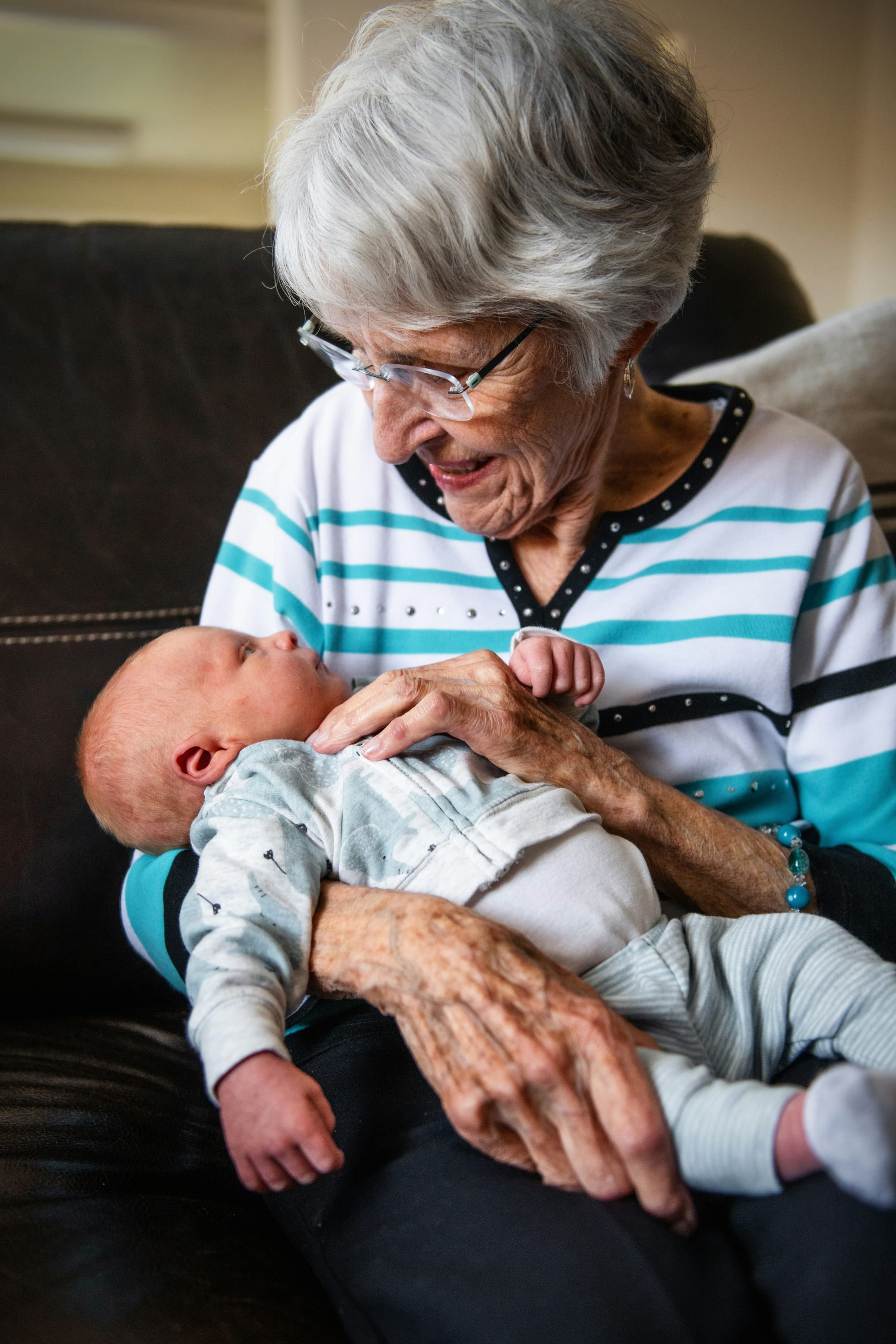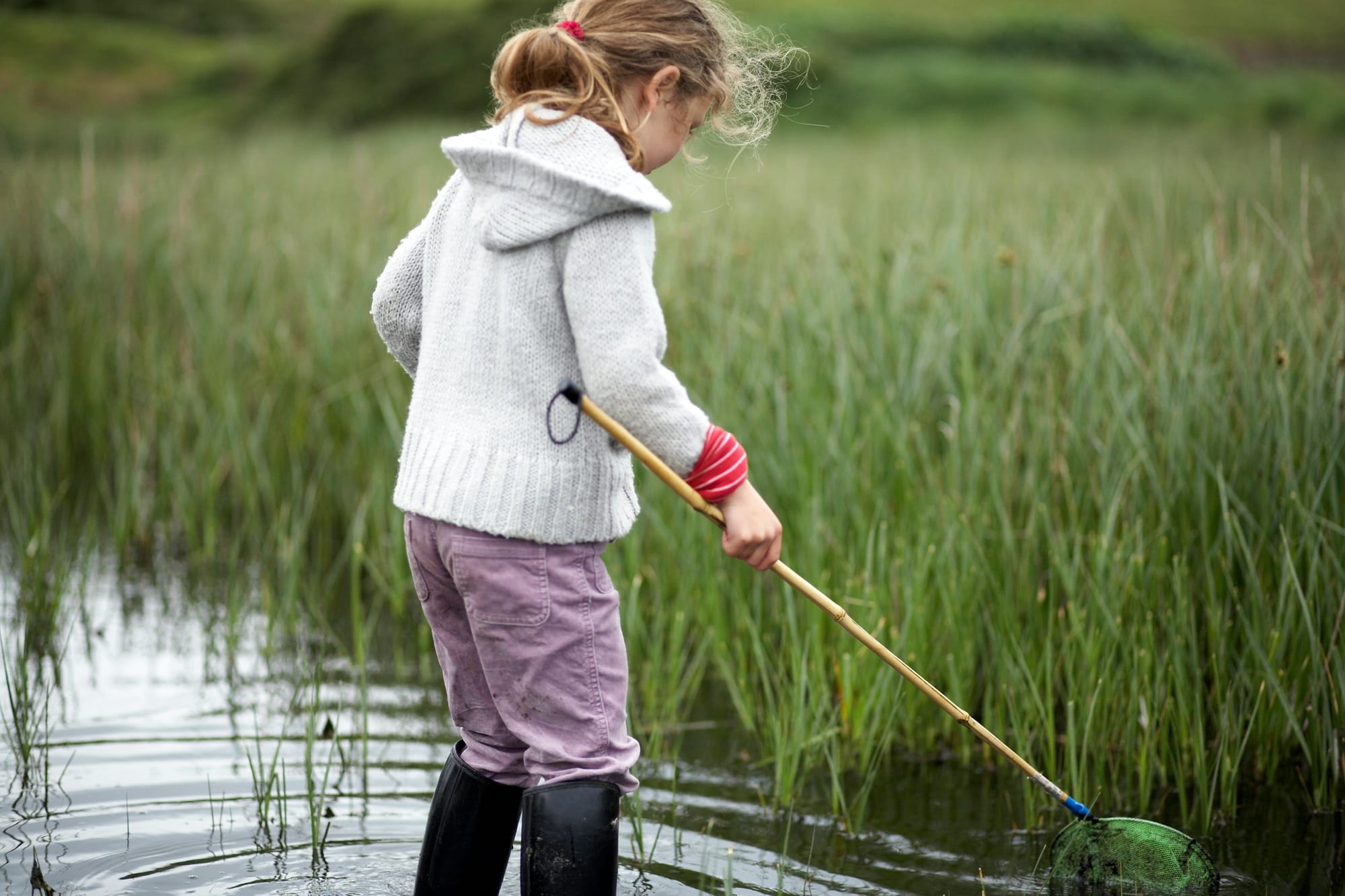Becoming patient—maybe!

A philosopher I know patiently lets ideas, conversations, and projects unfold over years, not worrying too much about the end product. My mother patiently puts up with poor mobility, poor vision, weakness, painful doctor’s appointments—even being drenched in a downpour outside the dentist’s office—no complaining. The grandchildren’s teachers patiently put up with noise and activity most mortals can’t handle. Me? I have trouble waiting for a cup of coffee.
How do patient people do it? Modern society doesn’t help. Quite the opposite—we’re set up make patience superfluous via on-demand shopping, information, socializing, and distraction. Some were probably born with a capacity for patience not everyone has. But mostly, they had to strengthen whatever ability they had with practice. This possibility means that even those of us less well-endowed can improve. And we can find ways to help our grandchildren start on the journey, too.

Worth the trouble?
But why should we bother, especially with AI about to do so much heavy lifting for us? For one thing, we need patience to attain high-level skills, whether the skill is scoring soccer goals, fine carpentry, playing guitar, close reading, or writing books. Even if AI or robots can eventually do these things, it can’t do them as you—you don’t get the pleasure of competency and accomplishment if AI does something for you.
Deepening and maintaining relationships also requires patience, so that one can solve problems, attend to needs, and remain open to growth and change over time.
Other skills depend on patience in other ways: Skills of seeing and attention, skills of “sitting,” of spiritual seeking—you can’t catch that perfect photo, see that rare bird, listen for wisdom or God, without patience.
And of course, there’s the patience to endure physical discomfort or situational difficulties, like my Mom does. Or, heck, just being able to pass the time in that line at the bank without going apoplectic. Or waiting for the right moment to pounce…
But what is patience?
Matthew Pianalto’s book On Patience: Reclaiming a Foundational Virtue, declares in its subtitle his way of understanding patience—that is, as a virtue. This perspective, he explains, has deep roots in ancient thought, eastern and western, and in the “big three” monotheistic religions (Judaism, Christianity, and Islam). The idea of patience as a “virtue” captures something important: a virtue is a skill and an attitude, and—at least when full-flowered—it is a character trait: The patient person can be depended upon to act and indeed to be patient.
Pianalto points out some key aspects of patience that help establish its range and cement his argument that it’s (possibly*) “foundational.” For one thing, we use patience in several ways and situations: First, self-possessed waiting (as at the bank); second, uncomplaining endurance (like my Mom); third, forbearance and tolerance (like the grandkids’ teachers); and finally, constancy or perseverance (like my philosopher friend, or anyone learning a skill). Or all of them for long-term relationships! For another, patience is not passive. It’s a form of internal activity, controlling antsy or angry impulses that raise our blood pressure or make us lash out (“I just told you not to…!!!!”), and controlling the pull towards immediate temptations that distract us from longer-term goals—that ability to stay away from the phone when it’s time to focus on the grandchildren. In this way of thinking, patience is related to a lot of other virtues. The descriptions of types of patience name some of these links: Patience is tied to the virtues of self-possession, endurance, forbearance, tolerance, constancy, and perseverance. It overlaps as well with courage and temperance.
When Pianalto thinks of patience as “foundational,” he’s saying it isn’t tied to other virtues haphazardly. Instead, it is (1) a necessary component of many other virtues (forbearance and the others require patience), (2) a prerequisite for practicing the other virtues (it takes patience to learn to persevere, e.g.), and (3) essential for developing—over years of thought and practice —the practical wisdom needed to know how and how longto be patient: Practical wisdom tells us, for example, how to respond patiently to an obstreperous tween. Practical wisdom lets us know how long patient forbearance makes sense, and when the moment for courage has come.
One way to boil all that down is to say that we need patience to pursue our goals. But that summary leaves out an important point: If patience is a foundational virtue, not any goals will do—the goals have to be virtuous, too.
Even if the virtue language doesn’t work for you, patience is still a skill worth pursuing for ourselves and encouraging in our grandchildren. Apparently the teachers at our 5-year-old grandson’s bilingual school appreciate this. He and his slightly older cousin were working on a jigsaw puzzle, and the older one was getting a little frustrated. Younger said to older, “Do you know the Spanish word perseverancia? It’s very important!”

Working on patience
As I said, I’m not patient, overall, so I’ve been working on it the past few years. I try to hear something worthwhile in a long, boring sermon—or at least resist the urge to check the time. I try to anticipate people taking a long time to get ready, so that I can relax or potter while they prepare. And I do my best to avoid situations I know I can’t handle patiently. For example, I know that the grandkids will drive me bonkers if they stampede around the house, so having them over almost always involves getting outside to work off energy. (Of course, strategic avoidance doesn’t always work. I’m immensely impatient with weeding, but I have to do it anyway.) Still, there are things I can do patiently—like edit a post, or read a complicated book, or play Monopoly.
Pianalto suggests that my experience is typical. Although ideal patience would run through all activities, in real life people can have a lot of patience for one thing, and very limited patience for another. Also in real life, we may have to settle for continence—in which we act patient, although seething inside—on the way toward ideal patience, in which patient attitudes/character/actions would flow smoothly and naturally, without great effort. The truly patient person is like a trained athlete running an easy mile, vs (mostly) continent me gasping my way along the track.
With these ideas in mind, it seems to me that a good approach to modeling patience for grandchildren, and helping them learn to be patient themselves, is to avoid generalizations like “Be patient!” and instead to verbalize specifics about what they or we need to be patient for and why; also how! So, if the bus is late, I might say, “We need to wait patiently for the bus because the bus is our only option today, and getting riled up will make our trip no fun. While we wait, let’s see how many out-of-state license plates we can spot.” Or if the child is impatient with him- or herself, maybe frustrated that they can’t draw a dragon that looks “right,” I might gently remind them that the people who can draw dragons have practiced a long time. Plus show them some component of drawing a dragon that they can do—maybe teach them to draw a tail or teeth or scales.
Hopefully, with ongoing practice, a little luck, and some practical wisdom, I can keep getting better at patience—and at handing on its value to the grandkids.
*Pianalto hedges at various points, because much of his discussion doesn’t depend on whether patience is foundational or not.